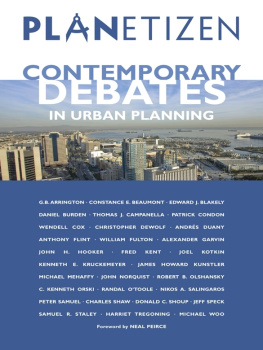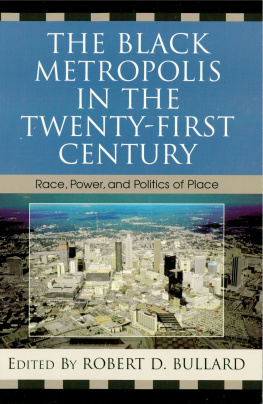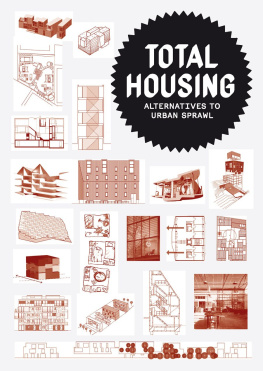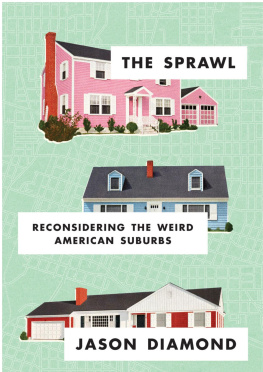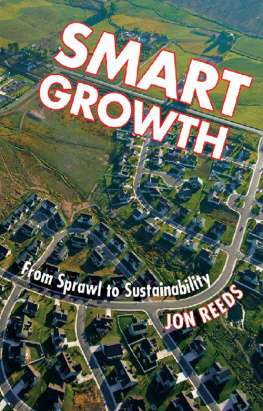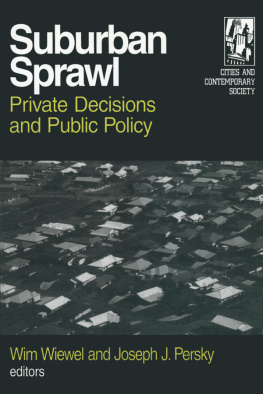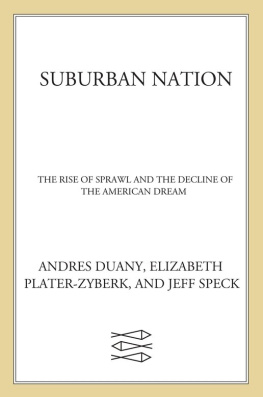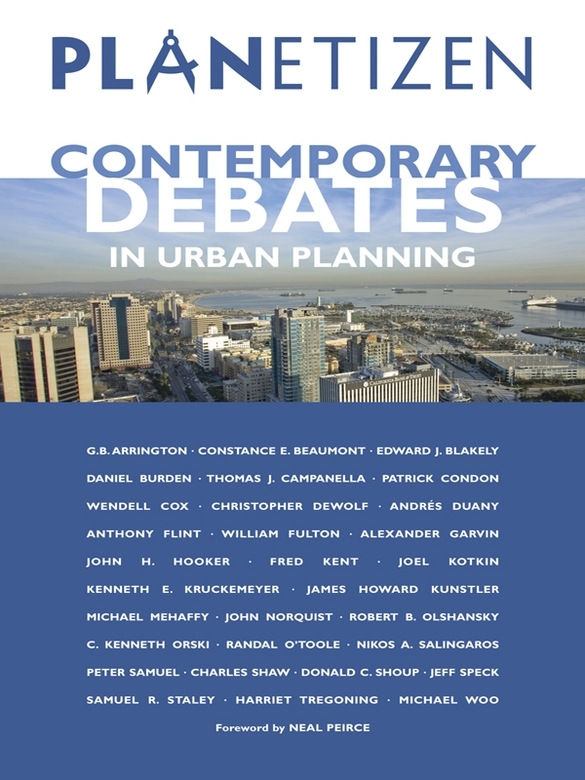Planetizen is first and foremost an online community. The active participation of this community is what powers Planetizen and has helped us to grow. We would like to thank all Planetizen readers and volunteer correspondents for their support, feedback, and ideas.
We would also like to thank the authors who have contributed to this book for their enthusiastic involvement at such short notice. We owe special thanks to Neal Peirce for graciously writing the foreword to this volume. We would also like to thank Paul Zykofsky and Nancy Mathison of the Local Government Commission, and Ryan Armstrong from the Orange County Transportation Authority, for their assistance with artwork.
Planetizen is a team effort, and we would like to recognize the key role our colleagues have played in bringing this project to fruition. Former Managing Editor David Gest laid the foundation for this books structure. Assistant Editor Nate Bergs organization and energy propelled the project. Art Director Mindy Olivers wizardry with pixels made the visuals in this book possible. Senior Web Developer Michael Jelkss programming expertise keeps the Planetizen website humming. Office Manager Brenda Meyer, our resident expert on publishing, guided us through the process and kept the project on track.
Finally, we would like to thank Shannon ONeill, Heather Boyer, and the entire team at Island Press for making this book a reality. We know we presented them with many challenges. But Island Press was always able to find a way to make our unusual ideas possible. We admire their flexibility and their invaluable guidance.
ISLAND PRESS BOARD OF DIRECTORS
Victor M. Sher, Esq. (Chair)
Sher & Leff
San Francisco, CA
Dane A. Nichols (Vice-Chair)
Washington, DC
Carolyn Peachey (Secretary)
Campbell, Peachey & Associates
Washington, DC
Drummond Pike (Treasurer)
President
The Tides Foundation
San Francisco, CA
Robert Baensch
Director, Center for Publishing
New York University
New York, NY
William H. Meadows
President
The Wilderness Society
Washington, DC
Merloyd Ludington Lawrence
Merloyd Lawrence Inc.
Boston, MA
Henry Reath
Princeton, NJ
Will Rogers
President
The Trust for Public Land
San Francisco, CA
Alexis G. Sant
Trustee and Treasurer
Summit Foundation
Washington, DC
Charles C. Savitt
President
Island Press
Washington, DC
Susan E. Sechler
Senior Advisor
The German Marshall Fund
Washington, DC
Nancy Sidamon-Eristoff
Washington, DC
Peter R. Stein
General Partner
LTC Conservation Advisory Services
The Lyme Timber Company
Hanover, NH
Diana Wall, Ph.D.
Director and Professor
Natural Resource Ecology Laboratory
Colorado State University
Fort Collins, CO
Wren Wirth
Washington, DC
CHAPTER 1.1
A TIPPING POINTBUT NOW TH E HARD PART
Anthony Flint
Smart growth is clearly making headway in urban areas across the country, but much remains to be done if the trend is to be sustained. Housing affordability ranks first among the challenges waiting to be tackled.
A funny thing has happened on the way to the revolution. Smart growth, New Urbanism, green building, and more sustainable development have all been trying to push their way into the American consciousness. Now that energy and transportation costs have soared, and the realities of global warming and energy dependence have truly sunk in, these practices are rather in vogue as a matter of consumer preference.
Leave it to the American consumer to snap to attention: understanding the real costs of living in sprawl, appreciating a more right-sized life in which its possible to walk to a corner store or hop on a trolley, and grasping how a good city park can be just as good as, or better than, a football fieldsize backyard. Now the builders of mixed-use, more concentrated, transit-oriented, and sustainable communities are rushing to meet a new demand, and single-family homes in subdivisions are not quite so popular. Toll Brothers and KB Homes, for example, saw massive earnings declinesand many of the large corporate homebuilders hastily established higher-density units. Owners of McMansions slashed prices and tossed in flat-screen TVs. A shift is clearly underway, as projects from Atlantic Station in Atlanta to warehouse renovations in downtown Minneapolis have filled up.
Yet, advocates of smart growth, New Urbanism, and sustainable development face new and greater challenges. The work that remains to be done includes convincing more local and state governments to tackle zoning and code reform and to shift investments and policies to support transit, more concentrated development, and revitalization in cities, town centers, and older suburbs. Now is also the time for more thoughtful long-range and regional planning in the arrangement of housing and jobs. Perhaps most important of all, these new, more sustainable patterns must be made affordable to the widest range of American families.
Affordability is a big part of the engine that drove sprawl in the first place, along with a quest for wide-open spaces, backyards and patios, good schools, and especially since September 11, a sense of safety and security to raise our families. In researching my book, This Land: The Battle over Sprawl and the Future of America (Baltimore: Johns Hopkins University Press, 2006), I visited Little Elm, Texas, a boomtown north of Dallas, where the homes started at $100,000. Across the country, home buyers drive to qualifydriving as far as needed to get to the subdivision house they can afford, even if its two hours from where they work. This dynamic is at work in West Virginia, the new bedroom community for the Washington, D.C., area; in Californias Central Valley, the new commuter shed for San Jose, Oakland, and San Francisco; and in Worcester County in my home state of Massachusetts, where Christmas tree farms and summer camps are being turned into subdivisions. As one woman told a Boston Globe real estate reporter recently, shes willing to drive three hours a day if I can come home to a castle (Joan Axelrod-Contrada, Westward Home; Buyers Find a Price They Can Pay and Some Breathing Room, if They Can Bear the Commute, The Boston Globe , April 9, 2006).
But affordability is also going to be a major force behind the new paradigmthe shift to more concentrated settlement patterns. With the cost of energy and transportation factored in, sprawl isnt the bargain its cracked up to be. Those long commutes mean $70 or $100 a week to fill up the tank. Annually, the cost of owning and operating a car is creeping up to $10,000 a yeareasily worth $100,000 on a mortgage. The bills for heating and cooling large homes are also weighing heavily on the family budget.
Its no mystery, then, why demand is increasing for alternatives. The big question is whether government is ready to smooth the way for these alternatives, by overhauling the system of rules, subsidies, and investment needs, starting with zoning. The current rules make it difficult to build compact, concentrated, and urban infill redevelopment. Eighty-year-old zoning requires dispersal and forbids mixed use. It actually limits housing choices.
Zoning and code reform is at the top of the to-do list, but other policies and incentives also need to change. Michigan, Pennsylvania, and Massachusetts have instituted a Fix It First policy that prioritizes the repair of existing transportation infrastructure, whether roads or transit, before any new sprawl-enabling highways are built.

